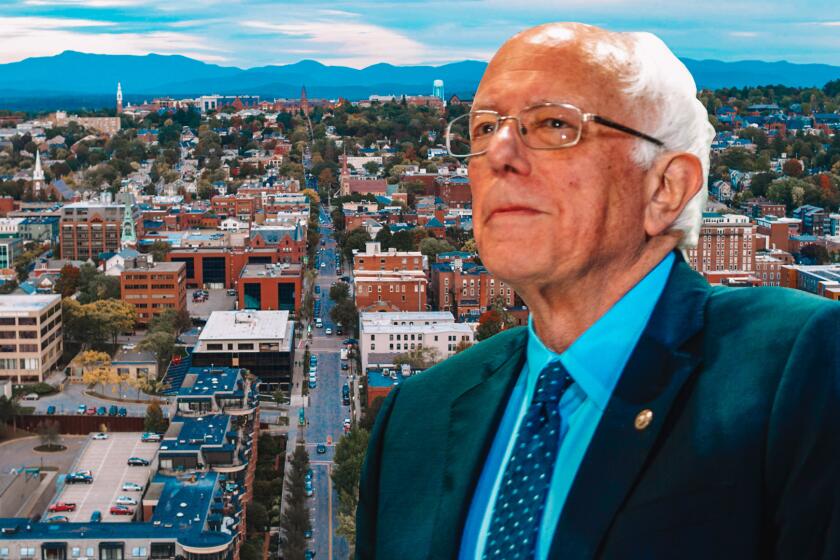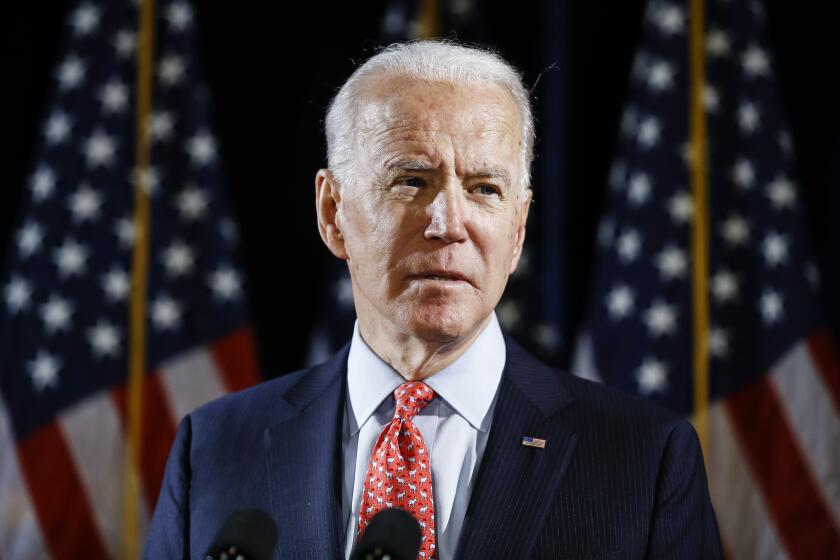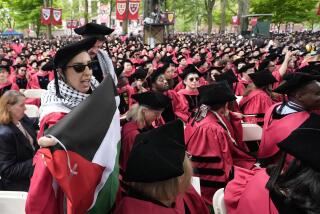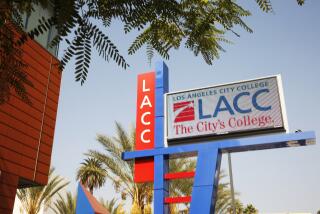
CAMBRIDGE, Mass. — Three days into her term as mayor, Sumbul Siddiqui sat behind an empty desk facing a full plate of challenges. She was tired.
Her small city, a mash-up of Colonial-era buildings and cutting-edge enterprises, would be the envy of just about anywhere.
Crime is low, riches spill from the treasury, businesses clamor to move in and workers are handsomely paid to help cure disease and invent the future. The population, which peaked in 1950, is rapidly growing again.
But amid all the prosperity something feels amiss. There is a gnawing sense that Cambridge is steadily gaining stature but slowly losing its soul.
More than half of its roughly 120,000 residents struggle to find affordable housing. The middle class is shrinking, along with the black and Asian populations. Local landmarks are being torn down or snapped up by wealthy investors with an eye on more lucrative use.
Elizabeth Warren, the ex-Harvard law professor and current Massachusetts senator and Democratic presidential hopeful, needn’t venture far from her white-trimmed 1890 Victorian to see the economic struggles and income inequality at the core of her White House bid.
About this series
Presidential candidates spend most of their time on the road, campaigning from one town to another. But what is the America they see from their own front doorstep? In this series of stories, Times reporters explore the communities that shaped some of the top Democratic candidates and their campaigns.
Cambridge, home to some of the most educated and opinionated people on Earth, is where the former Republican became a left-leaning Democrat, believing an activist government — far from burdensome — has a role to play as life’s leveler, smoothing the ruts and deciding what is fair and just. It could be the unofficial motto of her hometown.
Provide legal aid to immigrants facing deportation? Deploy social workers instead of cops to fight homelessness? Build zero-carbon schools to fight global warming?
City Hall has a plan for that.
Much tougher is finding a way to balance Cambridge’s growing good fortune with the disruption and displacement unleashed by so much success.
Back in the mayor’s office, unadorned save for a spray of flowers, Siddiqui reflected on the tension between what had been and what has come to pass.
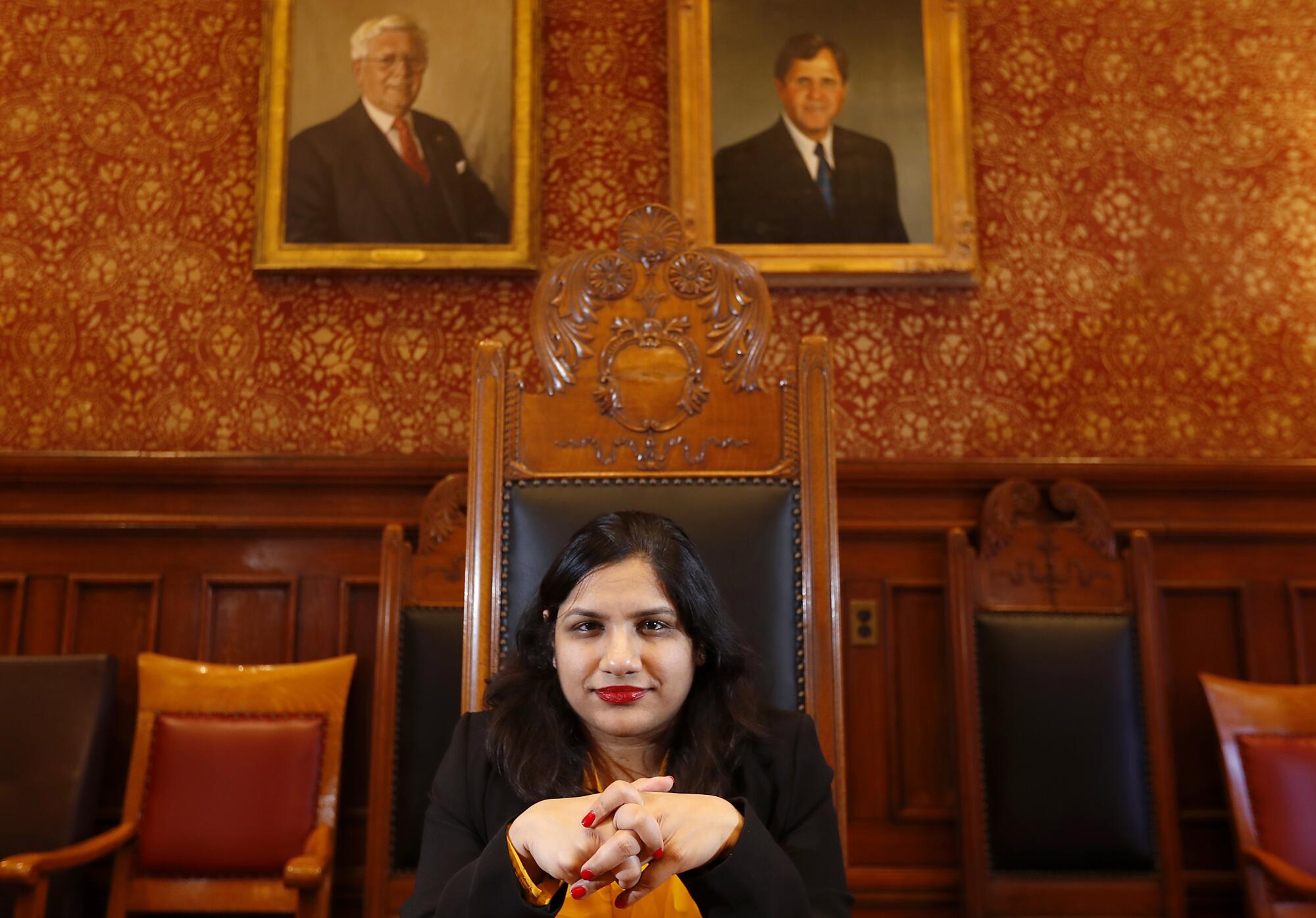
She arrived in Cambridge with her parents, Pakistani immigrants, when she was 2 years old. She was raised in public housing and, for a time after college, moved back in with her folks — a shipping clerk, a supermarket checker — so she could save for law school. At age 31, she is Massachusetts’ first Muslim mayor.
After a whirlwind of celebration and back-to-back meetings, Siddiqui reflected on her journey to City Hall, the kind of inspirational arc celebrated when we speak of this land as one of opportunity. It’s become far less attainable, the mayor believes, for someone growing up without privilege in today’s Cambridge.
“I think it’s a great city,” she said on a cold January morning, to the accompaniment of birdsong outside her third-floor window. “But it has changed tremendously. It’s become very hard to live here.”
::
Cambridge inhabits a mere seven square miles outside Boston, angling like a backslash into the Charles River.
Like many small, self-possessed communities, it is an island unto itself; the city has its own water supply and a feast of amenities that, residents say, make it needless to cross a bridge to the metropolis next door.
A onetime resident, reminiscing all the way back in 1956, described Cambridge in Holiday magazine as a place “where a high-school youth had his choice on a Friday night between the movies and a free public lecture by T.S. Eliot or Robert Frost.” More than 60 years later that intellectual and cultural buffet continues.
The first outside settlers arrived in 1630, religious reformers from England who sought to “purify” the Anglican Church and carve a livelihood amid the salt marshes and tidal streams abutting the area’s gently rolling hillsides.
Harvard, the oldest university in America, was founded in 1636. George Washington took command of the Continental Army on the city common and, for a time, operated his Revolutionary War headquarters from a mansion on Brattle Street. The sewing machine was invented here in the 1840s.
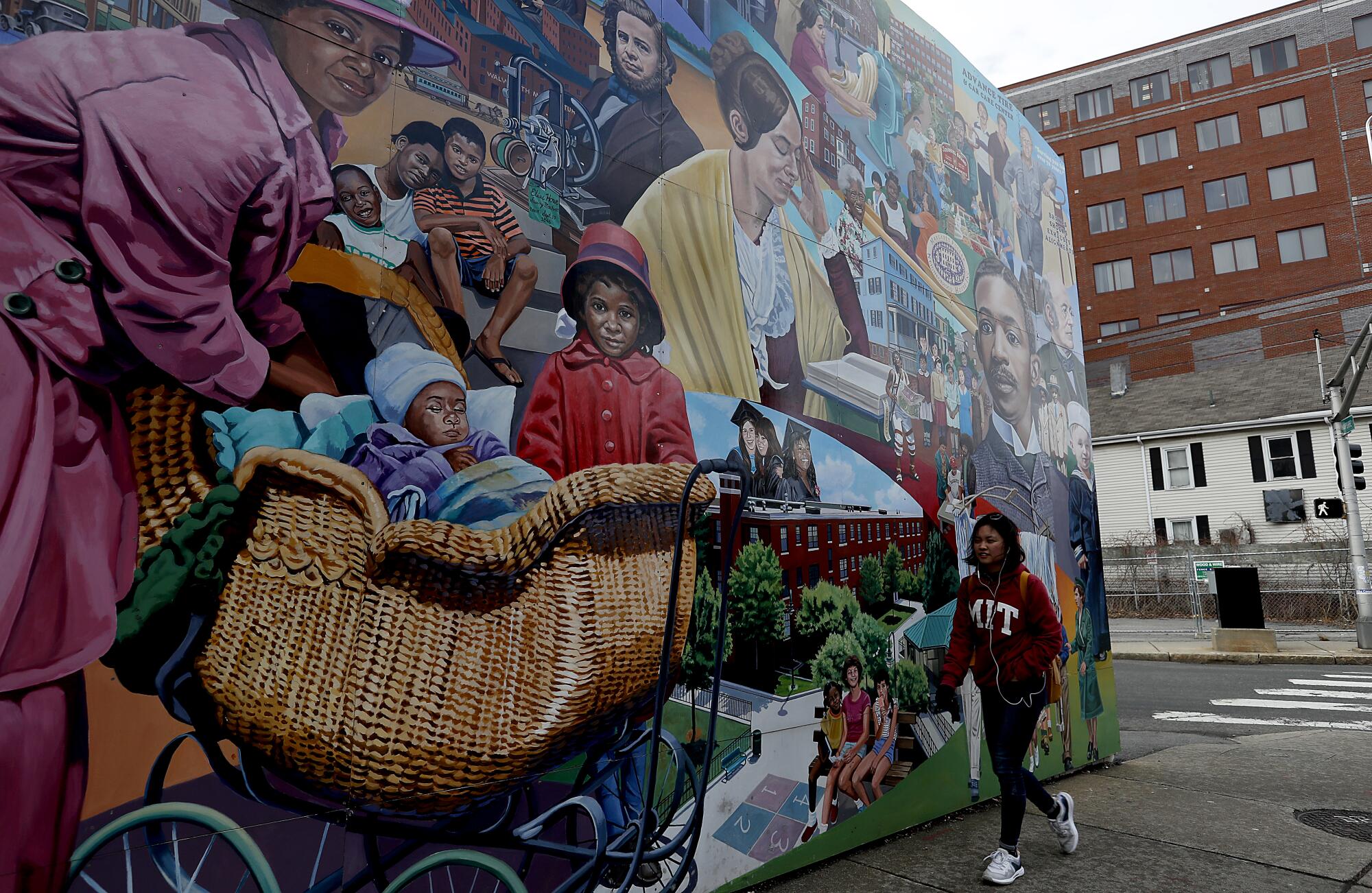
For much of its existence, the city has consisted of two contrasting sides: a hive of the mind and a hub of manufacturing.
With Harvard at its heart, and later MIT, Cambridge became a world-renowned center of innovation, home to life-changing medical and scientific breakthroughs. With a large immigrant population — waves of Irish, followed by refugees fleeing poverty in Eastern and Southern Europe — the city also grew into a major industrial center.
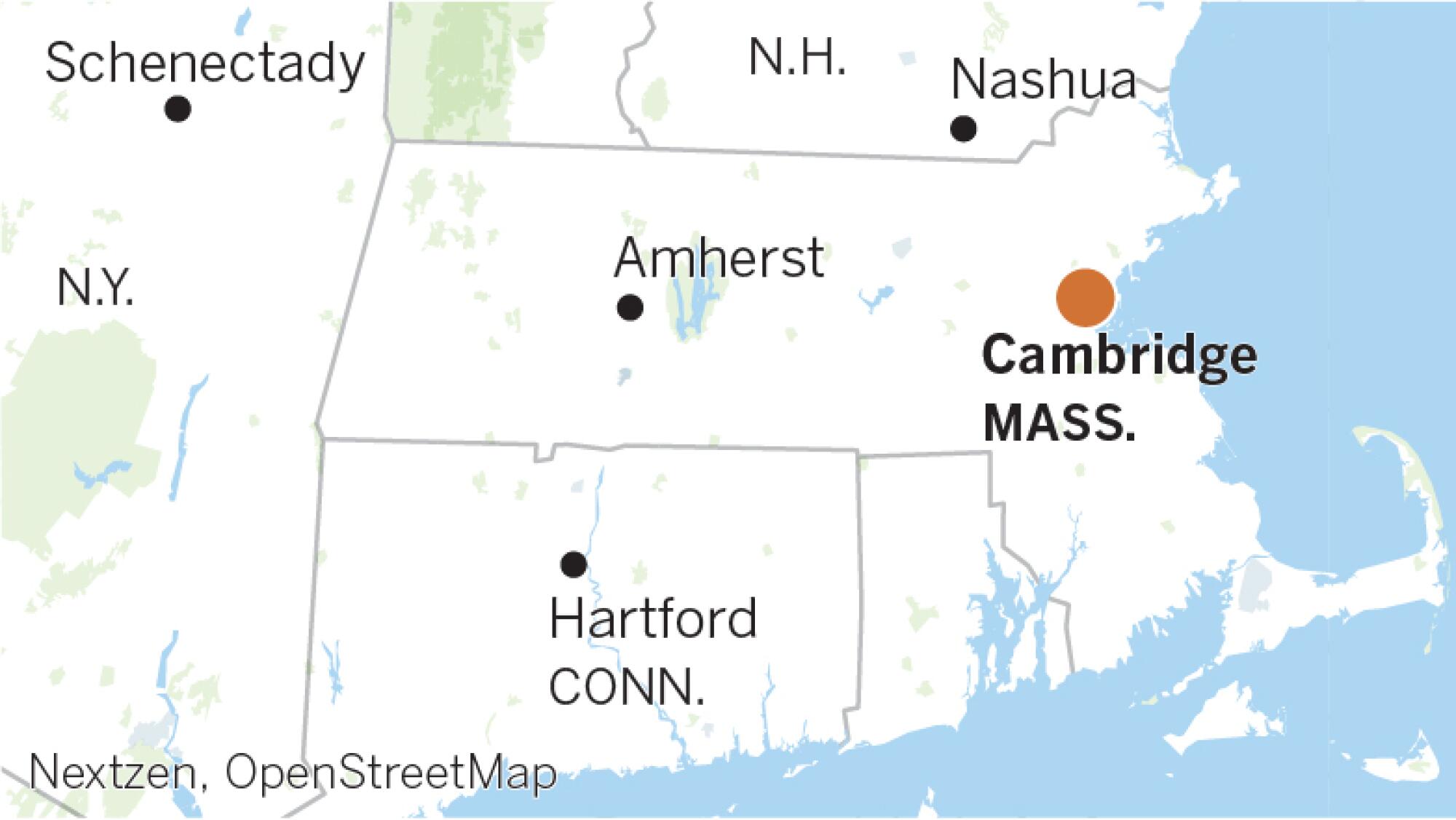
The New England Glass Co. was at one time the largest and most modern glassmaker in the world. Later, Cambridge was home to some of the world’s biggest candy factories, producing Tootsie Rolls, Sugar Daddys and Necco Wafers among the sweet bounty. (The last vestige of the industry is a plant near City Hall that produces the planet’s supply of Junior Mints.)
As one of the oldest cities in America, the past is a constant presence; historic markers, in more than half a dozen styles, dot the landscape like pinpoints on a map of centuries gone by. It is not unusual for Cantabrigians — as locals call themselves, with the faint whiff of nobility — to first introduce themselves by recounting their ancestral roots.
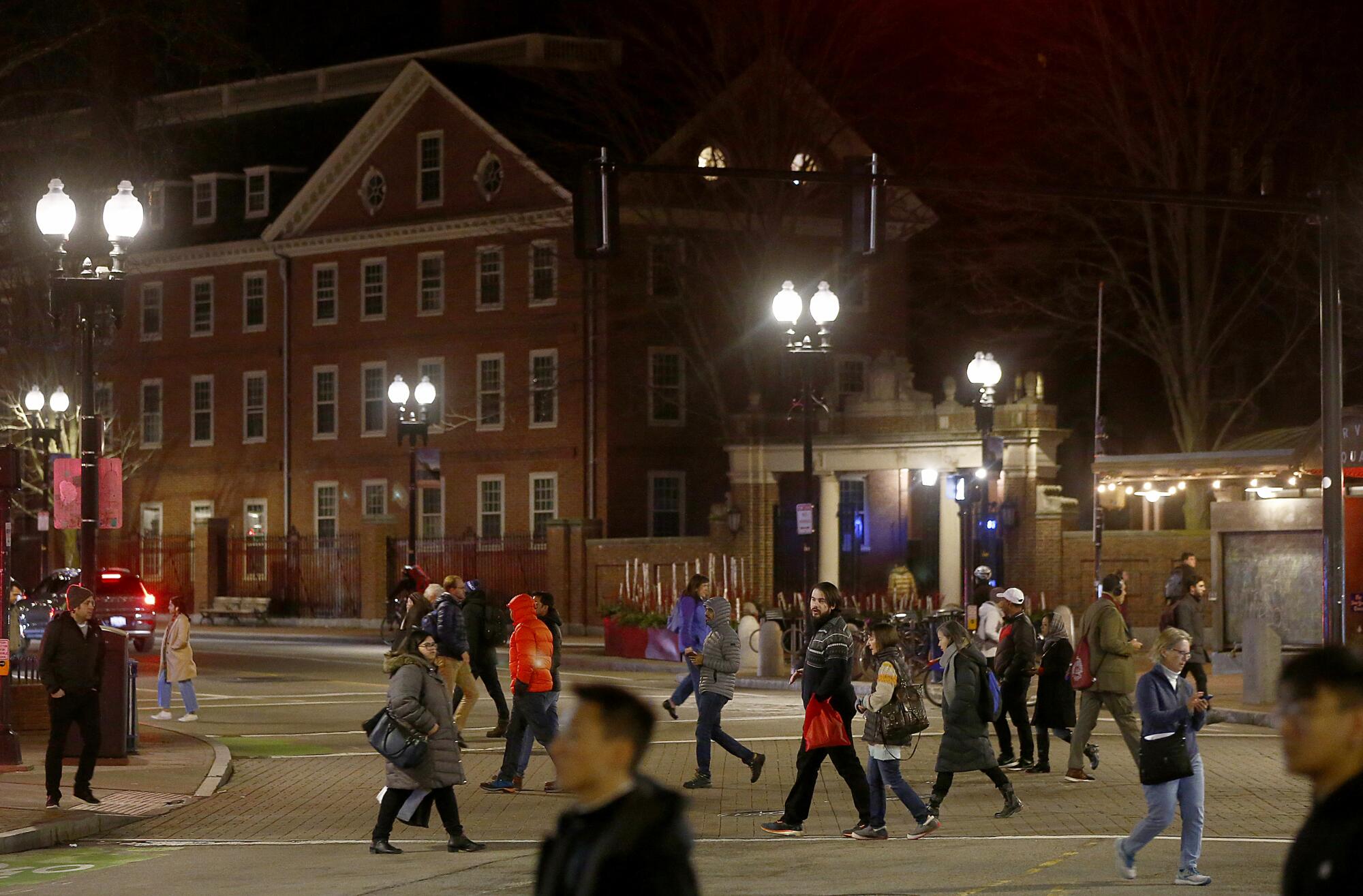
“People say you have to be at least four generations to be a true Cantabrigian,” Denise Jillson, executive director of the Harvard Square Business Assn., said good-naturedly. (She goes back 11 generations and boasts of a distant relation jailed for witchcraft.)
By that standard the 70-year-old Warren is a newcomer, having just arrived in 1995 to join the Harvard Law School faculty after stints in New Jersey, Texas and Pennsylvania. (Her campaign declined to make her available for this story.)
Unlike some presidential rivals who rose through local politics, among them former mayors Bernie Sanders and Pete Buttigieg, Warren never served in public office before her election to the U.S. Senate in 2012. She was neither well-known at City Hall nor active on local issues, of which there has never been a lack.
“Boycotts du jour,” said Mary Anne Marsh, a Democratic strategist, describing Cambridge’s hyperactive political scene. “There’s always a cause to carry and a protest to march in.”
There is not, however, much in the way of two-party competition. Hillary Clinton received 89% of the vote against Donald Trump in 2016. Warren won her second term in the Senate in 2018 with 91% support.
Despite that lack of local political involvement, Warren was and remains a friendly and familiar face around town: strolling with her husband, Harvard law professor Bruce Mann, and their golden retriever, Bailey, around Fresh Pond reservoir; sitting in a booth at Summer Shack, a cavernous seafood restaurant where the lobsters weigh up to 3 pounds; drinking beer, eating Doritos and cheering the Red Sox at Paddy’s, a corner saloon not far from her upscale neighborhood.
For all its sophistication, Cambridge in some ways remains a village, where long-timers can recite the names and histories of the panhandlers begging for spare change in Harvard Square, where the Brattle Square Florist remembers birthdays and anniversaries, and Warren earned the appreciation of the man who fixed her shoes by always making time to chat a bit.
“I gave $100” to her Senate campaign, said Christos Soillis, 83, who’s been a cobbler off Harvard Square since 1963. “That’s a lot of money to me.”
::
The source of Cambridge’s golden gusher is Kendall Square.
For years after its manufacturing industries gave out, the neighborhood was a pile-up of dilapidated factory relics and desolate parking lots. It could have been the center of the U.S. space program, but when President Kennedy — a former Cambridge congressman — was assassinated, Texan Lyndon B. Johnson took over and NASA found its home in Houston.
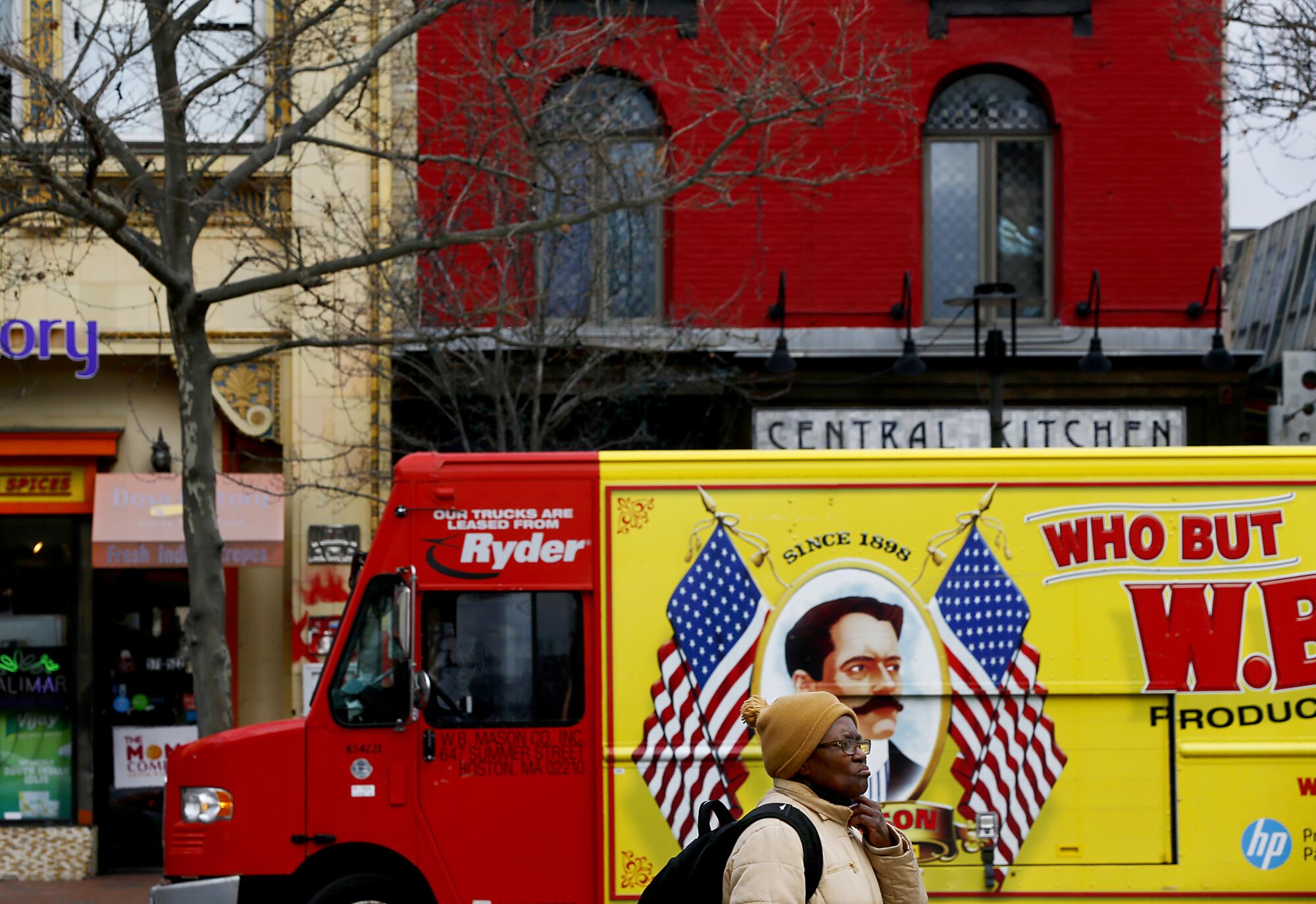
A revival slowly began when the first biotechnology companies arrived in the early 1980s. Since then, and particularly after the Great Recession, the transformation has been remarkable. Thirteen of the top 20 global pharmaceutical companies are residents, along with Amazon, Apple, Facebook and Google.
New buildings rise even as East Cambridge competes with Midtown Manhattan and Palo Alto as the priciest commercial real estate market in America.
Boosters proudly call Kendall Square “the most innovative square mile” on Earth and the wealth it produces has been undeniably beneficial to the city. Tenants account for a third of Cambridge’s massive $638-million budget. (If Los Angeles spent the same on each of its 4 million people, the budget would double to $21.2 billion.)
The flush times mean the city has continuously held the line on, or slashed, residential property taxes while boosting services to address growing concerns such as affordable housing, help for the homeless and, in response to cuts by the Trump administration, free breakfast for every child in the public schools.
“The Cambridge you see on postcards is one story. It’s a very important story,” said Marc McGovern, a former social worker serving his fourth term on the City Council. “But Harvard and MIT are only one story.”
The Cambridge you see on postcards is one story ... But Harvard and MIT are only one story.
— Marc McGovern, a former social worker serving his fourth term on the City Council
McGovern, 51 and a fourth-generation resident, has no wish to go back to the city’s lean years.
He remembers the schools being so strapped when he attended that he wore a coat to stay warm inside his wind-swept classrooms. Teachers in his family were laid off each summer and didn’t know until fall if there was money to hire them back.
Today, Cambridge is spending $500 million to build three carbon-neutral schools, without a dollar from the state or federal governments.
“We’re not the Rust Belt. We’re dealing with First World problems in a lot of ways,” McGovern said, as figurines of Warren, President Obama and Supreme Court Justice Ruth Bader Ginsburg peered from a shelf behind him. “But every day, people are having to fight to stay in Cambridge.”
Much of the city has a charming, Old World feel: a jumble of red-brick buildings and narrow, winding streets, public squares wedged between thoroughfares and two- and three-story homes crammed together in tree-lined neighborhoods.
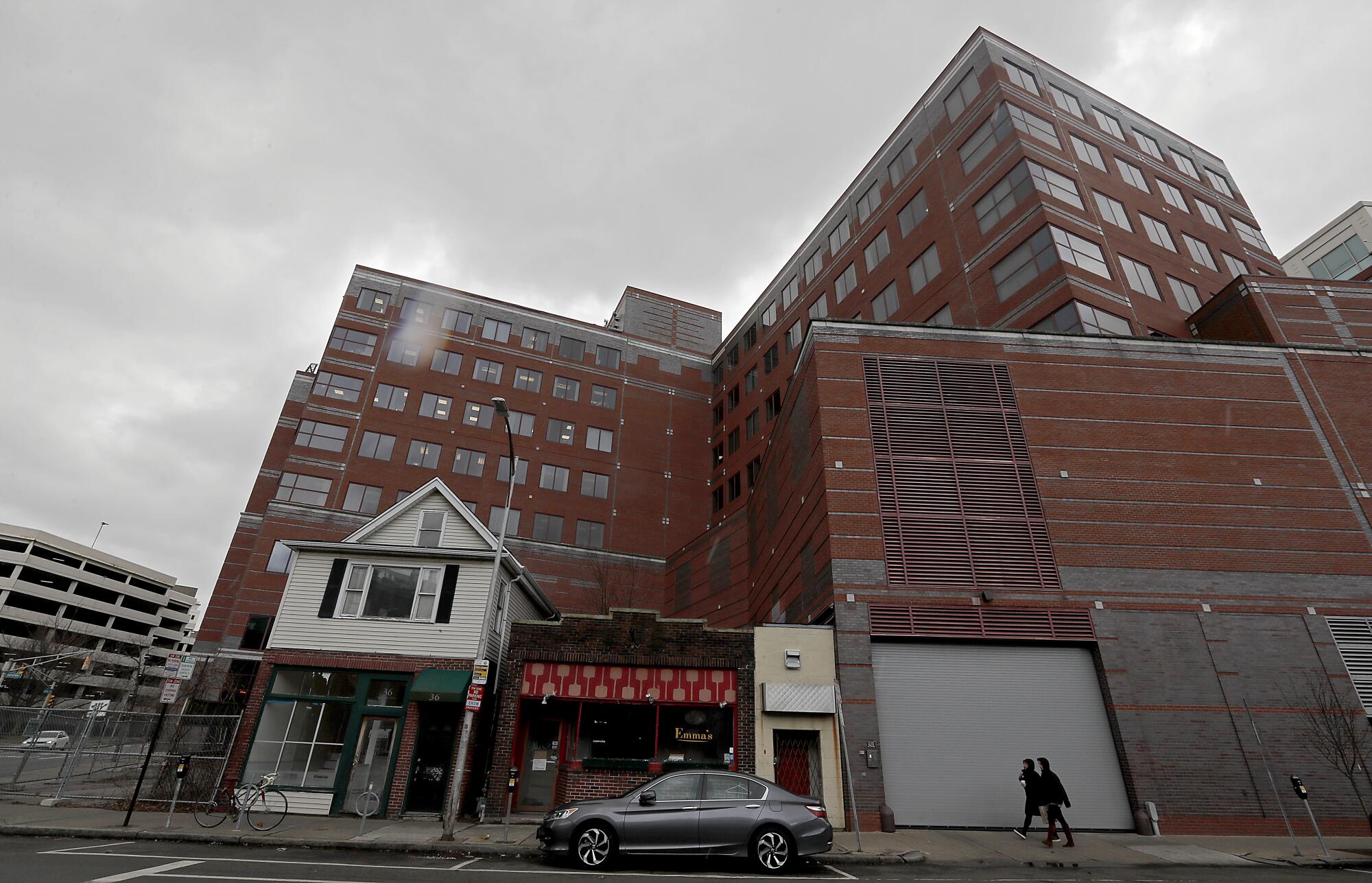
Kendall Square, by contrast, is broad avenues and airy spaces, angular high-rises and glassy cubes; the sensation is an office park transported lock, stock and corporate logo from Silicon Valley, then grafted like an appendage onto the rest of the city.
Critics say the economic effects have been similarly distorting, sending housing prices through the roof and turning Cambridge into a place only the rich can afford. Thousand-square-foot condominiums can fetch $1 million. Apartment rentals top $3,000 a month. The median home price — nearly $900,000 — compares to $230,000 nationally.
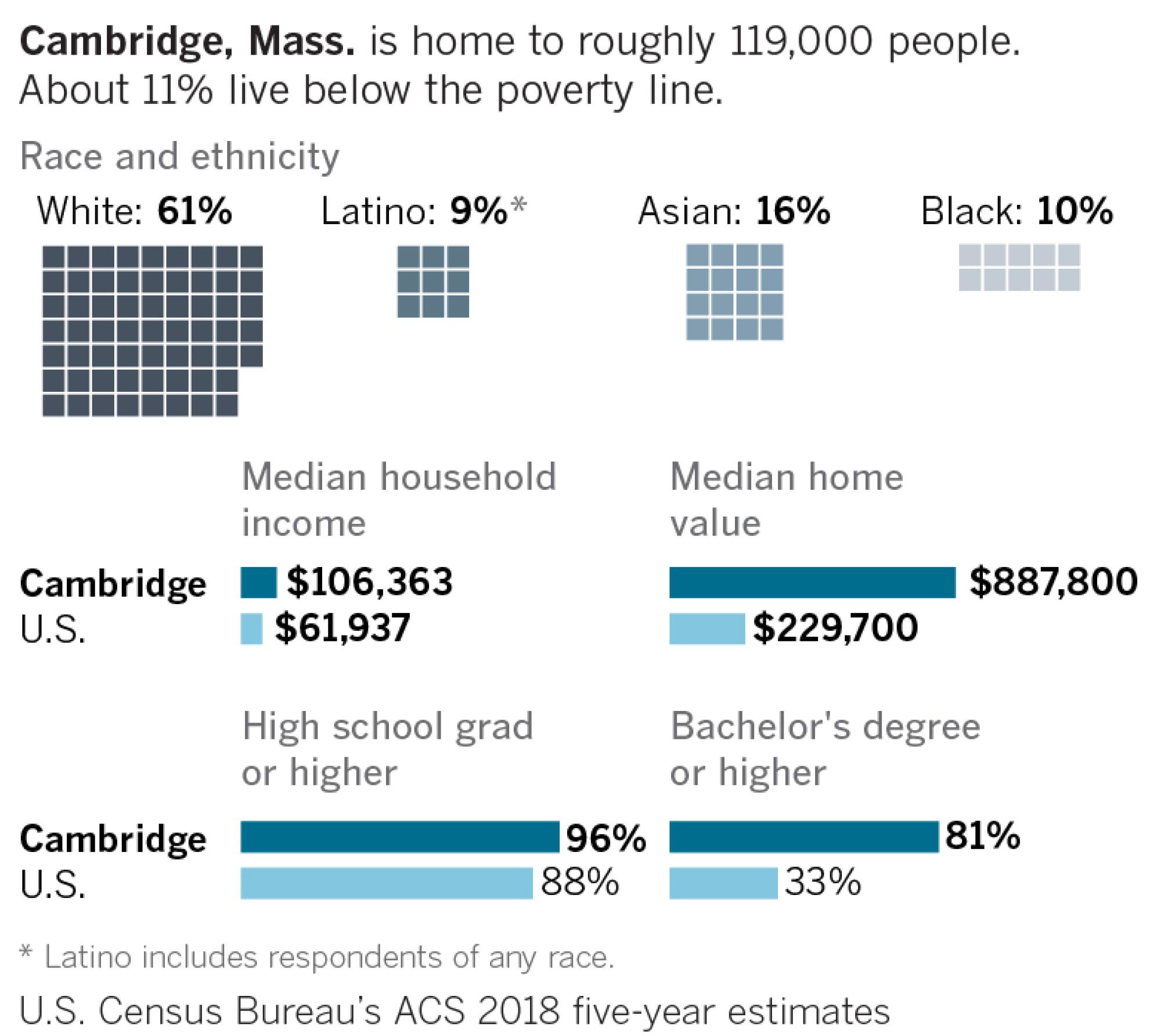
Beyond the dislocation, longtime residents see a fraying of the ties that bind a community.
Most of the city’s 280 police officers were born here — the law requires them to reside in Cambridge for a year before taking the civil service exam — but a majority live elsewhere because they can’t afford to stay in the place they’re sworn to protect and serve.
Ruth Allen, the boisterous owner of Paddy’s Lunch, said it’s difficult these days finding parents with the time or commitment to coach youth sports. “You get the nannies coming and dropping the kids off,” the 55-year-old saloon-keeper said in her cramped office behind the bar, “or parents working three jobs just to stay in Cambridge.”
Growing up in the ’70s, Kari Kuelzer said there was little sense of class difference.
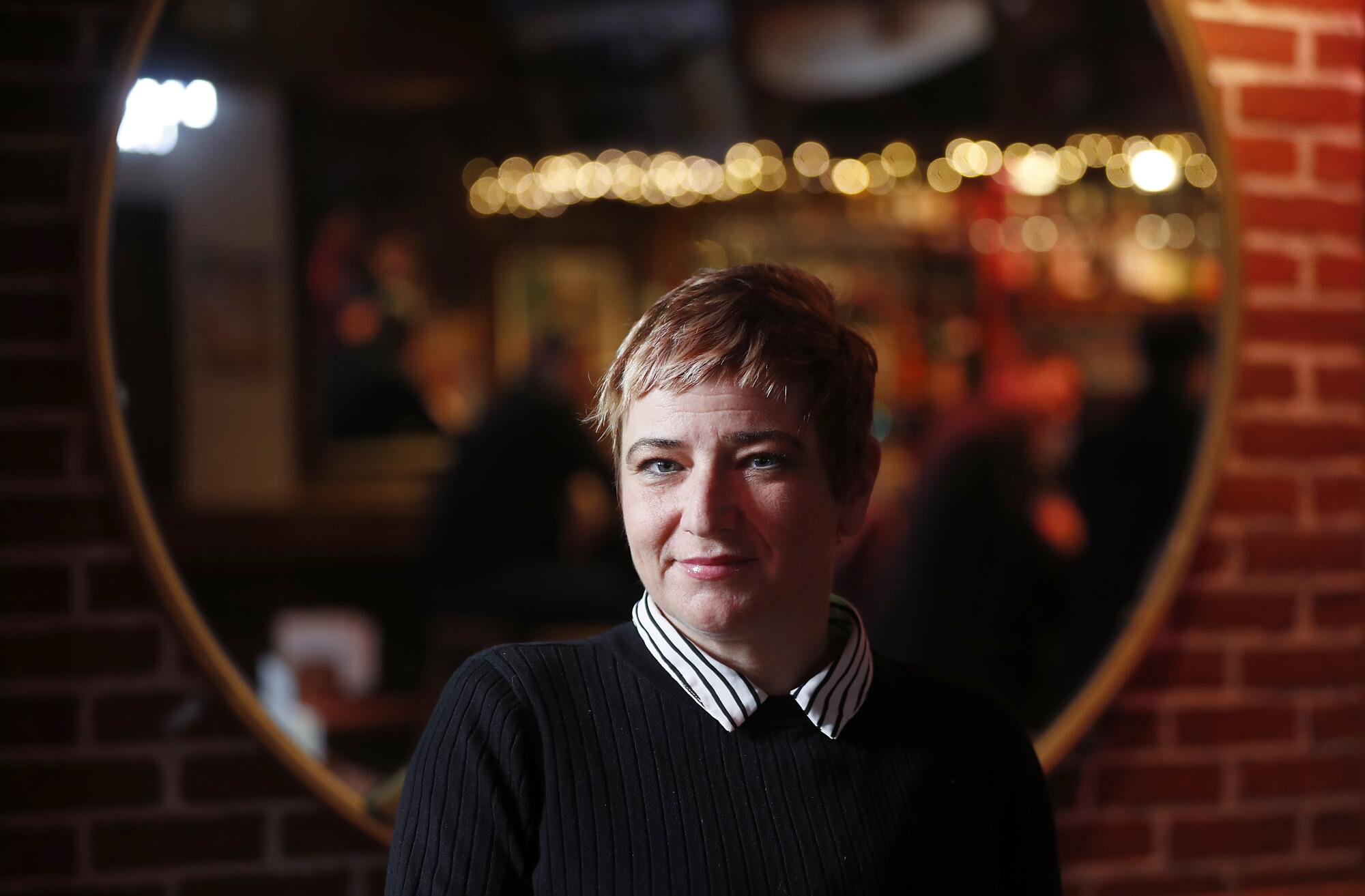
Kids lived in the same neighborhood regardless of whether a parent was a rocket scientist or auto mechanic, attended the same public schools and faced the future with the same glow of optimism. Today, Kuelzer said, “you can walk down the same street and be on two different paths.”
She sounded much like Warren when she spoke of government needing to step in, to mediate the marketplace and tame its excesses.
“I’m a capitalist,” said the 49-year-old owner of the bar and restaurant Grendel’s Den. “I’m an entrepreneur. But I think the type of capitalism we’re seeing is not really a level playing field. Best product, supply and demand is being undermined by unchecked greed.”
The Wi-Fi password at her establishment is Warren2020.
::
Cambridge is a bubble, and many here know it.
Apart from its affordable housing crunch, problems like traffic congestion, aging infrastructure and a yawning achievement gap between students of color and their white peers are hardly unique.
But few cities have as much money and brainpower (more than 80% of residents have bachelor or advanced degrees) to throw at those challenges. And not many places are as emphatically liberal.
As Jillson of the Harvard Square Business Assn. dryly put it, “Our reality is very different.”
Though Warren is widely respected and even admired, there is no small number of people here who wonder whether she’s too far left for the rest of America to swallow.
For the last 30 years, Rachael Solem has owned and operated Irving House, a 44-room bed-and-breakfast in a revamped Colonial Revival home just off the Harvard campus.
She, too, is a capitalist through and through, punching up numbers on her desktop and reporting with satisfaction the hotel’s high occupancy. (With an average daily rate of $200, she’s not giving rooms away.)
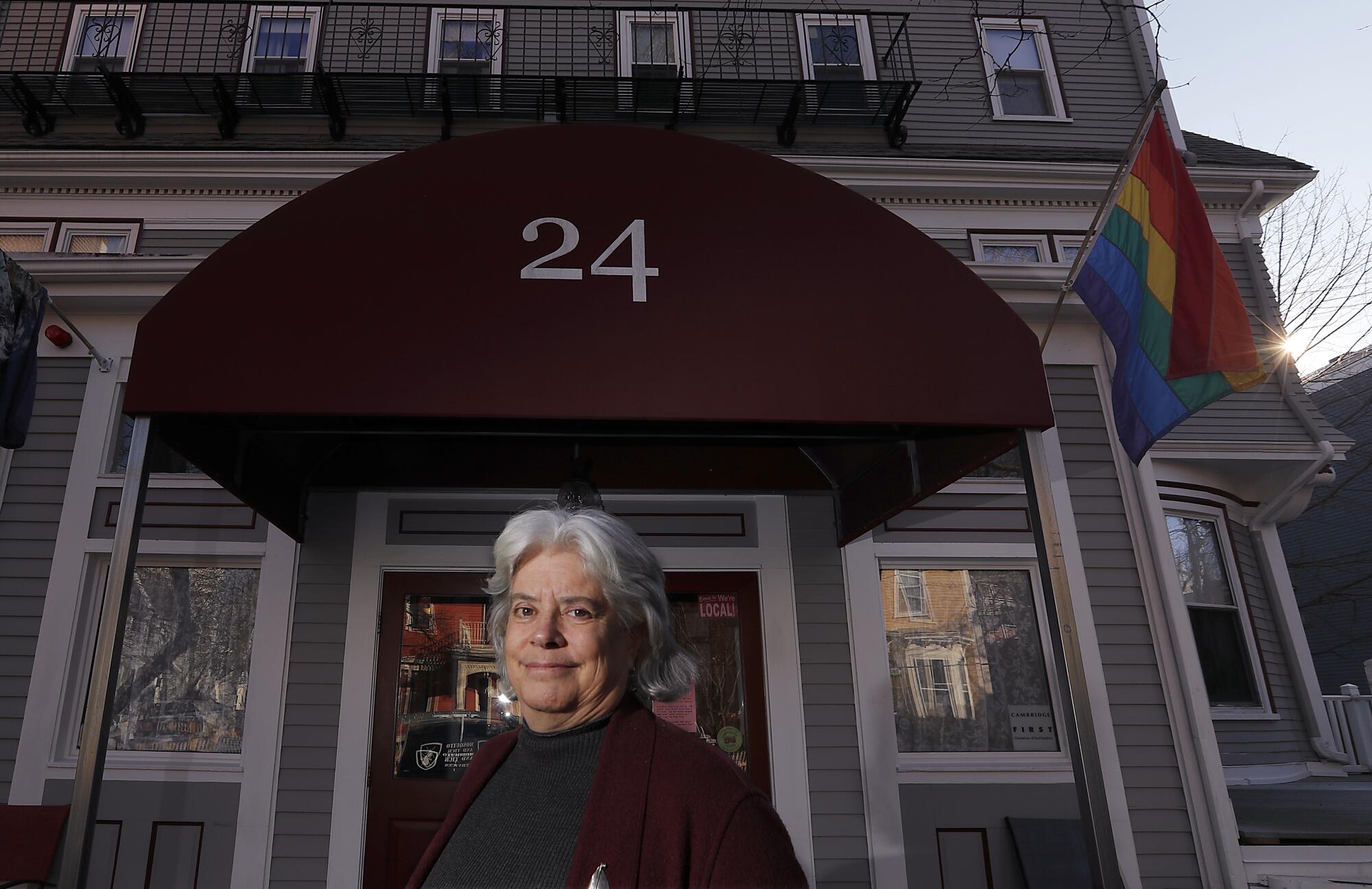
Like Warren, Solem believes a businessperson like herself can’t succeed all by herself. “I want schools to be good. I want roads to be good. We rely on good government,” she said. “There are plenty of issues we cannot address as businesses, or individuals. Warren gets that.”
But like many fellow Democrats, Solem — who can’t stand President Trump — worries what others think and how they might vote. “I see her as an excellent problem-solver,” Solem said of Massachusetts’ senior senator, “but can she win Florida, Ohio, Pennsylvania, Michigan?”
At 64, Solem is blunt-spoken and opinionated, with a theatrical way of speaking and a big laugh. She is also conflicted. “I have a lot of faith,” she said of Warren. “But is she the one? Is she the gal?” Her voice trailed off.
Is Warren, perhaps, too Cambridge to win the White House? She pondered. “I’m afraid,” Solem finally said, “she might be.”
The field is down to Joe Biden now that Bernie Sanders ended his presidential campaign. Here is the Democrat heading for a battle with President Trump.
More to Read
Get the L.A. Times Politics newsletter
Deeply reported insights into legislation, politics and policy from Sacramento, Washington and beyond. In your inbox three times per week.
You may occasionally receive promotional content from the Los Angeles Times.

